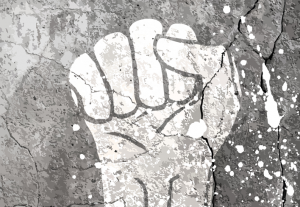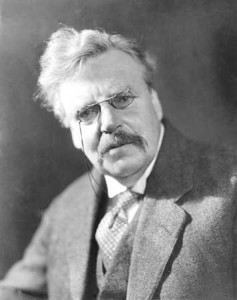Back in September, before the reality of this election set in, I saw a poster on a column in Novack advertising a panel discussion entitled, “Preventing Radicalization: What Works, What Doesn’t.” Many people believe that the fight against terrorism must be ideological as well as physical. We can bomb Daesh until “the sand glows,” but only through the force of ideas can we eliminate it. Social pressures dictate support for this panel discussion, but I already know what they are saying, and I know it to be false.
Alexis de Tocqueville believed that democracy was the prime mover of his era. He argued that since democratization was inevitable, those with power should seek to mold it into a form conducive to liberty and human dignity. Rather than resist democracy and have it turn into tyranny or despotism, de Tocqueville would guide it and shape it into something that elevated man to a higher level. The force of our era is no longer democracy; it is radicalism. It is powerful, it is irresistible, and like democracy, it is not ideal. But it can be bent, it can be tempered, and it can be forged into something good.
Reverend Martin Luther King Jr. wrote about extremism in his letter from the Birmingham Jail, initially expressing disappointment that others had labeled him an extremist. Then, reflecting on other great historical figures who, in their days, were known as extremists, he wrote, “The question is not whether we will be extremists, but what kind of extremists we will be. Will we be extremists for hate or for love? Will we be extremists for the preservation of injustice or for the extension of justice? […] Perhaps the South, the nation and the world are in dire need of creative extremists.”
Moral relativists, who have unfortunately imposed their worldview on academia, see political upheaval and violence as symptoms of extremism. Academia therefore seeks to fight things like terrorism, hateful populism, and political violence by ideologically combating extremism. The problem with this approach is that it begins with a false assumption: all ideas are morally equivalent. When hawks in Western countries advocate aggressive tactics to counter terrorism, the left cries foul: for them, the issue is that both sides have extreme views of the world, not that either side is evil.
The reality of the situation, as every good liberal knows, is that not all ideas are moral. There exists such a thing as an absolute good, whether from a religious perspective or a secular one. For individuals like de Tocqueville and King, liberty and human dignity are the metrics of this elusive good. Judaism, Christianity, Islam, and many other philosophies put forth solid foundations for thinking about good and evil, and these are more or less compatible. If some ideas are good and some are evil, it follows that extremism for good (or against evil) is a virtue.
This election cycle is toxically moderate. Neither Clinton nor Trump passionately advocate a moral worldview or an ideologically-driven course of action. Hordes of voters spend countless hours arguing, advocating, and persuading each other that one moderate candidate is marginally worse. This, they argue, creates a moral necessity to vote for their candidate of choice. Gone are the days when progressive socialists and true conservative capitalists waged a worldwide intellectual (and literal) battle. Dead are the passions that inflamed the hearts of men who fought for these ideals. Dartmouth students no longer feel strongly enough about real issues that they are willing to put their lives, or even grades, on the line to advocate them.
There is nothing The Review would like more than for progressive students to be eloquent and forceful advocates of real progressives causes. As extremists for truth, we believe real ideological conflict fosters mutual understanding and furthers the purpose of a college education.
The Review often reprints G. K. Chesterton’s remark, “He is a very shallow critic who cannot see an eternal rebel in the heart of a conservative.” In our minds, we bear the legacies of Buckley and Kristol, fighting Commies and rolling back the hippie tide. But that is nothing more than a delusion: our Communists occupy the President’s office over microaggressions and our hippies drink pumpkin spice lattes.
Outside of Dartmouth, around the world, real passions are fomenting. Come June, one thousand young men and women will be released to roam around the world, but they will be lacking any old chivalric faith. They will work in skyscrapers and raise good, moderate sons and daughters, but the walls will gradually close in on them. This is an era of passion, of extremes. Sooner or later, there will be no room for moderates. Therefore, only one question remains, the answer to which will be determined by the faculty and students of this College: will Dartmouth men be extremists or evil, or will they be radically good?



Be the first to comment on "The Dartmouth Radical"